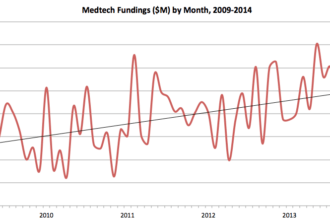My open rate crashed by 37%. Here’s why.
I really liked the last post I wrote. It was about “medical devices freedoms.” I was slightly witty, and the timing was right (I posted at the start of Jewish Passover, which celebrates freedom).
I was really excited to send it out.
My open rate crashed by 37%. Here’s why.
I really liked the last post I wrote. It was about “medical devices freedoms.” I was slightly witty, and the timing was right (I posted at the start of Jewish Passover, which celebrates freedom).
I was really excited to send it out.
But then reality came crashing in. Open rates were 37% lower than average!
At first, I couldn’t understand why. Then I looked at the subject line I wrote and it dawned on me: The subject line was completely crap. It wasn’t clear, it was too wordy and complicated. Frankly speaking: impossible to understand.
I wouldn’t have opened such an email myself.
So as a reminder for me (and you), I created this post with a few tips and rules for writing a great subject line that physicians will read.
Best practices for writing subject lines that rock
Use 5-10 words in the subject line
Jessica Stillman of inc.com cites research that shows there is a specific target word count you should use when you write your subject line. Despite the fact that this medical marketing blog has a much higher rate than those cited below, the overall message is worth mentioning.
The research analyzes 260 million emails from 540 different campaigns to determine the best length of subject line for a marketing email. Results were are follows:
- Subject lines with six to ten words generated a 21% open rate.
- Subject lines with five or fewer words were opened approximately 16% of the time.
- Subject lines with 11-15 words had around a 14% open rate. Despite this, more than half (52%) of the emails in the sample fell in this range.
Place the most important words at the beginning
As many as 50% of emails are read on mobile phones. Google research states that 50% of administrators use mobile devices in their research It is crucial to put the important information at the beginning. Long subject lines simply get cut off. Look at messages arriving in your own inbox and see for yourself. Subject lines of up to 50 characters should work fine.
Make subject lines personal
Even though everyone knows that companies use advanced email systems that send messages to many people simultaneously, we tend to hope that we are unique. And we really like to see our name in the inbox. If you manage an email list targeting physicians, think about using the physician’s name in the subject line. Personalization is effective: Research by Retention Science found subject lines that included the recipient’s first name had a 16% higher open rate.
! Note: Make sure that you have the person’s name right! There is nothing more off-putting to Dr. Jones than receiving an email addressed to Dr. Ford.
Formulas for writing a perfect subject line
Campaign Monitor offers 8 subject line formulas to get your emails opened. Here are the ones that I like most:
The question subject line
What Is the Best Font Size to Use in a Presentation?
How can you make an impact at a medical conference?
The ‘How to’ subject line
How to interpret the new Medicare fee schedule
How to reduce nosocomial infections in the ICU
The announcement subject line
New Medical Devices Exhibition Checklist to Download
Meet Company XYZ at coming [exhibition]
Company XYZ releases device to treat [condition]
The number subject line
10 Tips for an effective medical website
7 effective ways to save money in the operating room
3 new technologies for treating [medical condition]
The curiosity gap subject line
An important lesson I learned about email marketing
New ways to sell medical devices to physicians
The secret sauce for effective medical sales
I screwed up. Open rates crashed by 37%.
Remember to answer the question: What’s in it for me?
No matter what you decide to write in your subject line, you need to make sure that it answers the question of any email recipient: What’s in it for me? Physicians, investors, and hospital administrators are extremely time-strapped and are bombarded daily with offers and promotions. If you want them to pay any attention, open your email, and even possibly read it, you need to give them a compelling (and brief!) reason to do so.
Picture:MCAD Library










